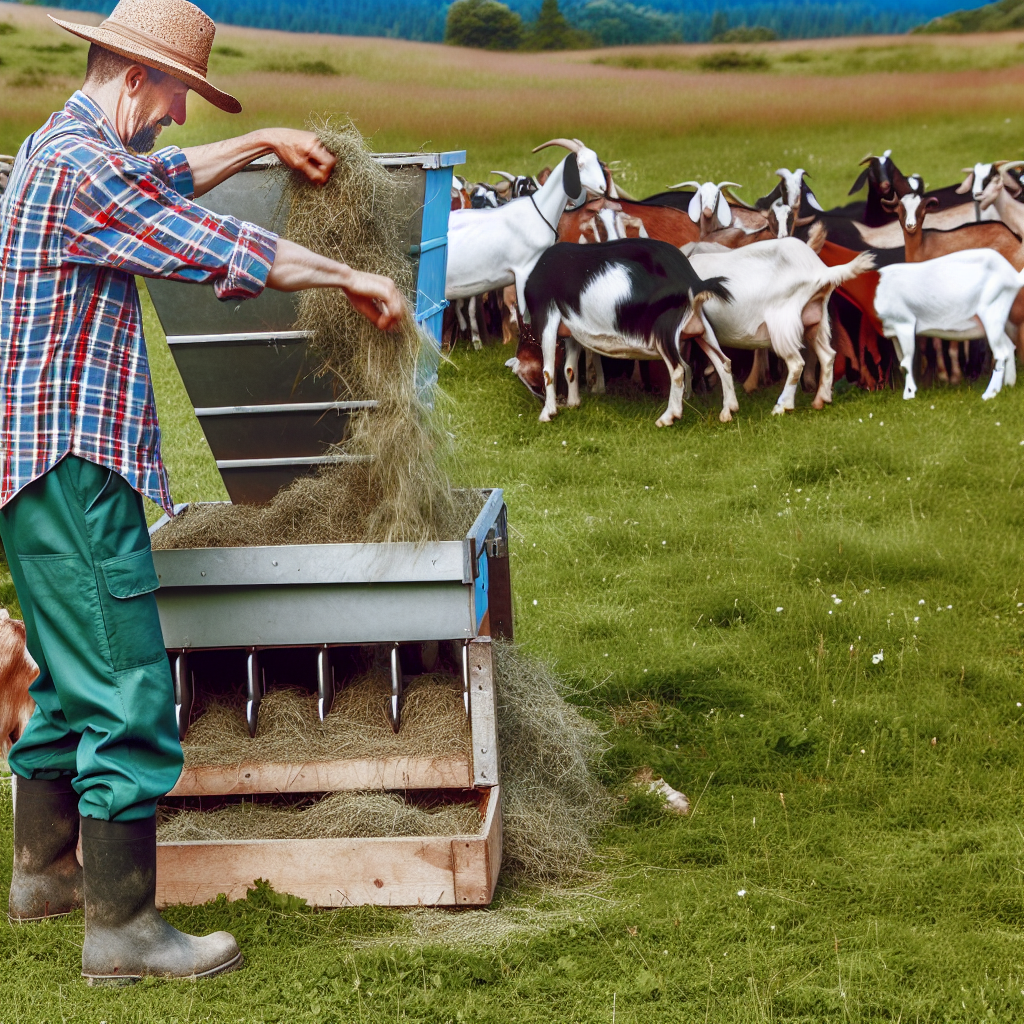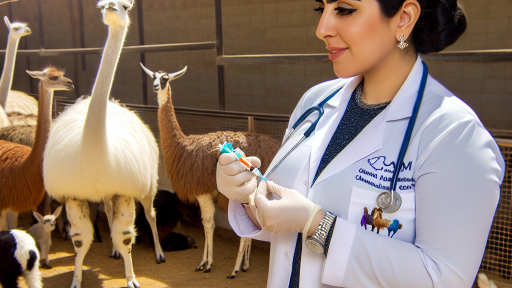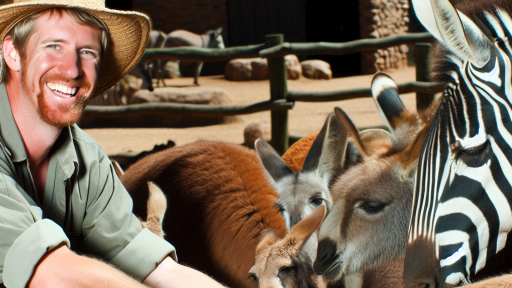Introduction to Goat Nutrition
Goat nutrition plays a vital role in their overall health.
Understanding their dietary needs leads to better growth and milk production.
Goats are ruminants and require a balanced diet for optimal performance.
Therefore, it is essential to provide them with quality forage and concentrates.
Understanding Nutritional Requirements
Goats need specific nutrients to thrive and reproduce.
These nutrients include proteins, carbohydrates, fats, vitamins, and minerals.
Each nutrient serves a critical role in their physiology.
For example, proteins are crucial for growth, reproduction, and milk production.
Furthermore, carbohydrates provide the energy necessary for daily activities.
Forages and Roughages
Forages form the foundation of a goat’s diet.
They primarily consist of grasses, legumes, and shrubs.
These feed types are high in fiber and support healthy digestion.
Certain forage plants also provide essential nutrients.
Quality hay is a good alternative during winter months.
Concentrates in Goat Diet
Concentrates are energy-dense feeds.
Transform Your Agribusiness
Unlock your farm's potential with expert advice tailored to your needs. Get actionable steps that drive real results.
Get StartedThey include grains, seeds, and commercial pellets.
These foods are beneficial, especially for lactating or growing goats.
However, overfeeding can lead to digestive issues.
Thus, offering concentrates in moderation is crucial.
Water and Hydration
Water is a critical component of goat nutrition.
Goats require access to fresh and clean water at all times.
Proper hydration supports digestion and overall health.
During hot weather, goats may need more water than usual.
Supplementation and Minerals
Mineral supplementation is often necessary for goats.
Common minerals include calcium, phosphorus, and salt.
These minerals support bone health and reproductive performance.
Additionally, providing a mineral block can facilitate intake.
Feeding Practices
Implementing good feeding practices enhances nutrition.
First, provide a consistent feeding schedule.
Secondly, ensure a clean feeding area to prevent contamination.
Finally, monitor body condition regularly to adjust rations.
Understanding the Nutritional Requirements of Goats
Essential Nutrients for Healthy Growth
Goats require a balanced diet to ensure healthy growth.
They need proteins, carbohydrates, fats, vitamins, and minerals.
Protein is crucial for muscle development and overall health.
Carbohydrates provide the necessary energy for daily activities.
Fats support skin and coat health while offering energy reserves.
Vitamins and minerals aid in various bodily functions.
Digestive System Adaptations
Goats are ruminants, which means they have a specialized digestive system.
Their stomachs consist of four compartments.
Showcase Your Farming Business
Publish your professional farming services profile on our blog for a one-time fee of $200 and reach a dedicated audience of farmers and agribusiness owners.
Publish Your ProfileThis adaptation allows them to efficiently process fibrous plant materials.
Consequently, they thrive on roughage such as grasses and hay.
Offering high-fiber diets helps maintain their digestive health.
Additionally, it promotes healthy weight and energy levels.
Water Requirements
Fresh water is essential for goats’ overall health.
Goats need access to clean water at all times.
They can consume up to a gallon of water per day.
Water intake varies based on temperature, activity, and diet.
Proper hydration aids in digestion and nutrient absorption.
Moreover, it prevents dehydration-related issues.
Feeding Frequency and Strategy
Regular feeding schedules benefit goats significantly.
They should receive smaller, more frequent meals throughout the day.
This strategy aligns with their natural grazing behavior.
Incorporating forage and grain improves their overall nutrition.
Consider using pasture management techniques for optimal grazing.
Regularly assess their body conditions to adjust feeding practices.
Special Nutritional Needs
Breeding and lactating does require special feeding considerations.
Increased protein and caloric intake support fetal growth and milk production.
Older goats or those with health issues may need tailored diets.
Always consult a veterinarian when modifying a goat’s diet.
Monitoring their well-being helps ensure long-term health.
Types of Feed
Grains
Grains are a vital component of goat diets.
They provide essential carbohydrates for energy.
Common grains include corn, barley, and oats.
It is crucial to balance grain intake with other feeds.
Overfeeding grains can lead to digestive issues.
Forages
Forages form the backbone of a goat’s diet.
They consist of grasses, hay, and legumes.
Quality forages ensure proper rumen health.
Goats benefit from a variety of forage types.
Changing forage types can stimulate appetite.
Supplements
Supplements enhance the nutritional content of goat diets.
Mineral and vitamin supplements are particularly important.
These can prevent nutritional deficiencies.
Protein supplements may be necessary during lactation.
Use supplements according to specific dietary needs.
Balancing the Diet
A balanced diet is crucial for goat health.
Combine grains, forages, and supplements effectively.
Consult a veterinarian for tailored feeding recommendations.
Regular monitoring of body condition is essential.
Showcase Your Farming Business
Publish your professional farming services profile on our blog for a one-time fee of $200 and reach a dedicated audience of farmers and agribusiness owners.
Publish Your ProfileAdjust feeding strategies according to growth stages.
Gain More Insights: Maintaining Transport Vehicles for Livestock Safety
Role of Minerals and Vitamins in Goat Diets
Importance of Minerals
Minerals play a crucial role in goat nutrition.
They support various bodily functions and growth.
Key minerals include calcium, phosphorus, and magnesium.
Calcium is essential for bone development and milk production.
Phosphorus contributes to energy metabolism and bone health.
Magnesium helps with muscle function and nerve impulses.
Deficiencies in these minerals can lead to serious health issues.
For example, low calcium levels may cause milk fever.
Overall, balanced mineral intake ensures optimal health in goats.
Key Vitamins for Goats
Vitamins are also vital for goat diets.
Essential vitamins include A, D, E, and B-complex.
Vitamin A supports vision and immune function.
Vitamin D aids in calcium absorption and bone health.
Vitamin E acts as an antioxidant, promoting overall health.
Meanwhile, B-complex vitamins are crucial for metabolism.
Deficiencies in vitamins can significantly affect goat performance.
For instance, a lack of vitamin A can lead to night blindness.
Healthy goats require a balanced supply of these vitamins.
Supplementation Strategies
Farmers often supplement minerals and vitamins in goat diets.
Using mineral blocks can provide essential nutrients.
Liquid supplements may also enhance nutrient absorption.
Additionally, forage quality plays a significant role.
High-quality pasture usually contains sufficient minerals and vitamins.
Regularly test the forage to ensure nutrient levels meet goats’ needs.
Consulting a veterinarian can help tailor supplementation strategies.
Monitoring and Adjusting Diets
Monitoring goat health is essential for effective feeding.
Signs of deficiencies include poor growth and reproductive issues.
Adjustments to the diet may be necessary based on observed symptoms.
Record keeping of feeding practices aids in identifying trends.
Continuous evaluation ensures optimal nutrient intake for goats.
Close attention to diets can improve overall herd performance.
Gain More Insights: Building Secure Facilities for Exotic Animals
Feeding Strategies for Different Goat Breeds
Dairy Goat Feeding Requirements
Dairy goats require a diet high in energy and protein.
Their feed should include high-quality hay and pasture grasses.
Additionally, dairy goats benefit from grain supplements during lactation.
Mineral supplements are vital for their overall health.
Always ensure access to fresh, clean water.
Meat Goat Nutritional Needs
Meat goats thrive on a high-fiber diet.
Showcase Your Farming Business
Publish your professional farming services profile on our blog for a one-time fee of $200 and reach a dedicated audience of farmers and agribusiness owners.
Publish Your ProfileThey require nutrient-rich forage for optimal muscle development.
Grain feeding helps increase their weight efficiently.
Ensure they receive minerals to promote healthy growth.
Moreover, hydration is crucial for their digestion.
Pygmy Goat Special Considerations
Pygmy goats have different energy needs compared to larger breeds.
They require a balanced diet to avoid obesity.
Small amounts of grain can support their nutritional needs.
High-quality hay remains a staple in their diet.
Do not forget to provide fresh water daily.
Breeding Goat Nutritional Guidelines
Breeding goats need special attention to their diet.
Provide additional protein during the breeding season.
They benefit from high-energy feeds to support gestation.
Adequate mineral intake supports proper fetal development.
Monitoring their body condition score is essential.
General Feeding Tips for All Goat Breeds
Always introduce new feed gradually to avoid digestive issues.
Observe goats regularly for signs of deficiency or illness.
Utilize pasture rotation to maintain forage quality.
Fenceless pastures help increase their grazing area.
Finally, regularly consult with a veterinarian for dietary advice.
You Might Also Like: Waste Management In Livestock Facilities

Seasonal Feeding Adjustments for Goats
Understanding Seasonal Needs
Goats have varying nutritional needs throughout the year.
Understanding these needs helps ensure optimal health and productivity.
Seasonal changes affect forage availability and quality.
During the winter, forage becomes scarce and less nutritious.
In spring and summer, plants grow rapidly, increasing nutrient accessibility.
Winter Feeding Strategies
During winter, ensure goats receive adequate energy sources.
Consider providing supplemental grains to maintain body condition.
Introduce high-quality hay to enhance fiber intake.
Monitor the condition of each goat closely.
Adjust feed based on weight and health status.
Spring and Summer Nutrition
In warmer months, goats benefit from fresh pasture.
Rotate grazing areas to maximize forage quality.
Incorporate legumes into their diet to boost protein intake.
Provide ample clean water to prevent dehydration.
Observe forage growth to avoid overgrazing.
Autumn Preparation
As autumn approaches, prepare for the cooler months ahead.
Begin transitioning goats to winter diets gradually.
Limit access to lush growth to reduce digestive issues.
Store high-quality hay and grains for winter use.
Implement a feeding schedule to ensure nutritional consistency.
Showcase Your Farming Business
Publish your professional farming services profile on our blog for a one-time fee of $200 and reach a dedicated audience of farmers and agribusiness owners.
Publish Your ProfileMonitoring Health and Adjustments
Regular health checks are vital during seasonal changes.
Pay attention to signs of nutrient deficiencies.
Maintain detailed records of feeding practices and health status.
Consult a veterinarian for specific nutritional needs.
Adjust feed solutions based on seasonal observations.
Gain More Insights: Sustainable Sheep Grazing Practices
Common Feeding Mistakes to Avoid
Neglecting Nutritional Balance
Goats require a balanced diet for optimal health.
Proprietors sometimes focus on one type of feed.
This can lead to nutritional deficiencies.
Always include a mix of grains, hay, and minerals.
Consult with a veterinarian for specific dietary needs.
Overfeeding or Underfeeding
Feeding goats too much can lead to obesity.
Conversely, insufficient food can cause malnutrition.
Monitor goat body condition regularly.
Adjust feed amounts based on their activity levels.
Document feeding routines to identify patterns.
Ignoring Fresh Water Supply
Fresh water is critical for goat health.
Some owners overlook this essential need.
Ensure goats have access to clean water daily.
Change water frequently to keep it fresh.
Feeding Only Grain
Grain alone does not meet all nutritional requirements.
Goats also need fiber from hay and pasture.
Limit grain to prevent digestive issues.
Consult a feeding guide for proper proportions.
Forgetting About Salt and Minerals
Goats require salt and minerals for growth.
Neglecting these can cause health problems.
Utilize mineral blocks for easy access.
Set up a regimen to check supplies regularly.
Ignoring Signs of Illness
Watch for signs that may indicate dietary issues.
Weight loss can signal inadequate nutrition.
Examine manure for signs of digestive distress.
Seek veterinary advice at the first signs of trouble.
Monitoring Goat Health through Feeding Practices
Understanding Nutritional Needs
Goats require a balanced diet for optimal health.
Each goat’s nutritional needs vary based on age and weight.
Feeding should consider growth stages, lactation, and reproductive status.
Regularly assess dietary components for quality and adequacy.
Importance of Fresh Water
Water is crucial for goat health and digestion.
Ensure goats have access to clean, fresh water at all times.
Monitor water intake as it directly correlates to feed consumption.
Inadequate water can lead to dehydration and health complications.
Showcase Your Farming Business
Publish your professional farming services profile on our blog for a one-time fee of $200 and reach a dedicated audience of farmers and agribusiness owners.
Publish Your ProfileMonitoring Body Condition
Regularly evaluate the body condition score of goats.
This helps determine if feeding practices meet their needs.
A body condition score between 1 and 5 is ideal for health.
Adjust feeding strategies based on body condition assessment.
Testing Feed Quality
Quality of feed greatly affects overall health.
Conduct regular tests on feed for nutritional content.
Identify and eliminate any feed that shows signs of spoilage.
Using high-quality feed promotes better weight gain and milk production.
Observing Behavioral Changes
Behavior changes may indicate nutritional deficiencies.
Watch for signs of lethargy or reduced appetite.
Stress can result from poor feeding practices or nutrition.
Address any sudden changes in behavior immediately.
Implementing Regular Health Checkups
Schedule routine veterinary checkups to monitor health.
Health screenings should include nutritional assessments.
Veterinarians can provide tailored advice for feeding strategies.
Document health changes over time to improve feeding practices.
Additional Resources
Will Harris & White Oak Pastures Farm: The Dirt Underneath — THE …




